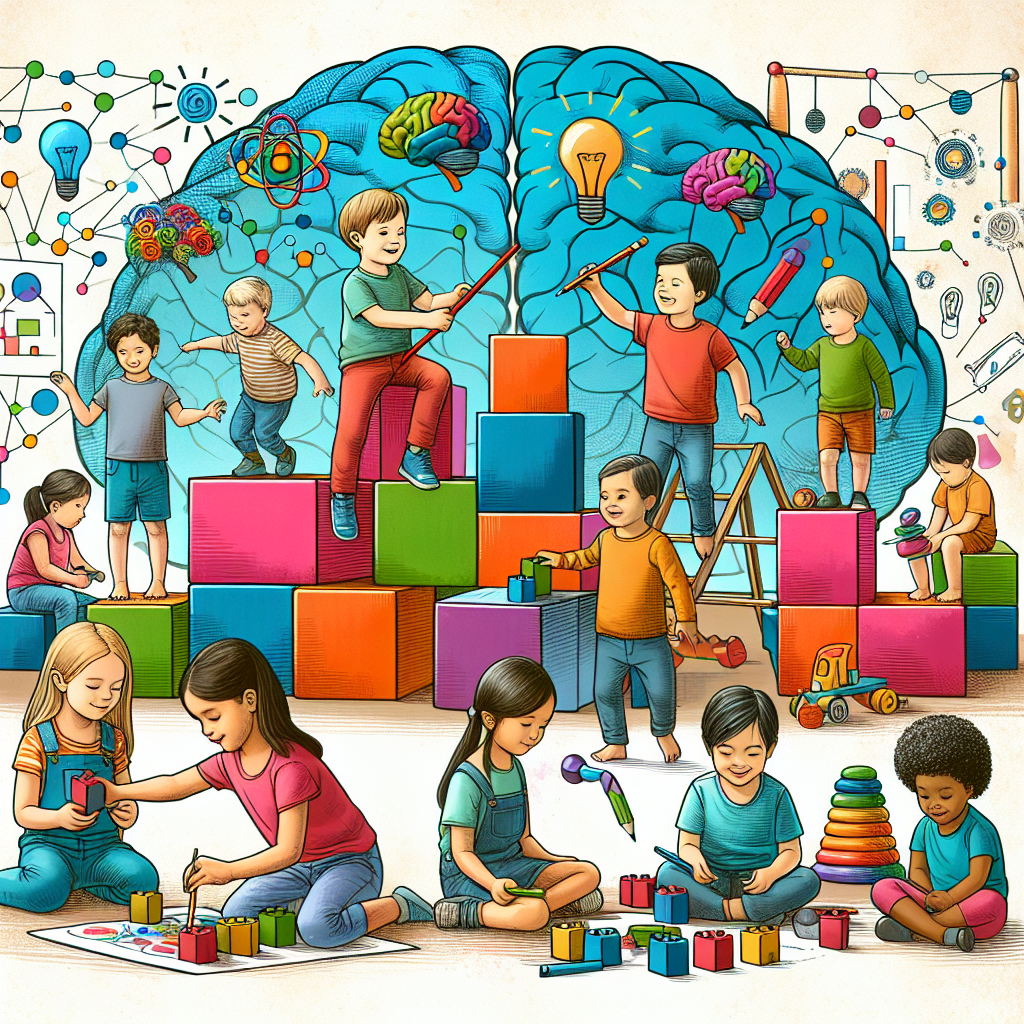Play is a fundamental aspect of childhood that not only brings joy and happiness to children but also plays a crucial role in promoting their cognitive development. Through play, children are able to explore their environment, learn new concepts, develop problem-solving skills, and enhance their creativity and imagination. In this article, we will delve deeper into the importance of play in promoting cognitive development in children and explore how parents and caregivers can support and encourage play in their child’s daily routine.
Play as a Tool for Cognitive Development
Play is often referred to as children’s work because it is through play that children learn and master new skills. Play allows children to engage with their surroundings, experiment with different ideas, and make sense of the world around them. Through play, children are able to practice and improve their cognitive skills such as memory, attention, problem-solving, and decision-making.
One of the key ways in which play promotes cognitive development is through the development of executive function skills. Executive function skills encompass a wide range of cognitive processes such as the ability to focus attention, inhibit impulses, plan and organize tasks, and set goals. These skills are essential for success in school and in life, and play provides ample opportunities for children to practice and strengthen these skills.
In addition, play helps children develop their creativity and imagination. When children engage in pretend play, they are able to create imaginary worlds, take on different roles, and explore different scenarios. This not only enhances their creative thinking but also allows them to see things from different perspectives and develop empathy and understanding towards others.
Furthermore, play helps children develop their problem-solving skills. When children are engaged in play, they are faced with various challenges and obstacles that require them to think critically, come up with solutions, and adapt to changing circumstances. This helps children learn how to think flexibly, approach problems from different angles, and persist in the face of challenges – all essential skills for success in school and in life.
Supporting Play in Children
As parents and caregivers, it is important to understand the importance of play in promoting cognitive development in children and to actively support and encourage play in their daily routine. Here are some tips to help foster a playful environment for your child:
1. Provide a variety of play materials: Offer a wide range of toys, games, and materials that encourage different types of play such as imaginative play, constructive play, and games that require problem-solving skills. This will help stimulate your child’s creativity and imagination and provide opportunities for them to practice different cognitive skills.
2. Create a play-friendly environment: Designate a space in your home where your child can play freely and safely. Make sure the environment is conducive to play by providing plenty of open space, natural light, and comfortable seating. Consider organizing play materials in a way that is easy for your child to access and put away.
3. Encourage open-ended play: Encourage your child to engage in open-ended play activities that allow them to explore, experiment, and create without strict rules or guidelines. This type of play fosters creativity, problem-solving skills, and independent thinking.
4. Join in on the fun: Play is a great way for parents and caregivers to bond with their children and promote positive interactions. Take the time to play with your child, engage in imaginary play, and participate in games and activities together. This not only strengthens your relationship with your child but also provides opportunities for learning and skill-building.
5. Limit screen time: While technology can offer educational and interactive opportunities, it is important to limit screen time and encourage more hands-on, active play. Screen time can be overstimulating and detrimental to cognitive development, so try to strike a balance between screen time and other types of play.
FAQs
Q: At what age should I start encouraging play in my child?
A: Play begins in infancy and continues throughout childhood. Even infants engage in sensory play by exploring their environment through touch, sight, and sound. As your child grows, play becomes more complex and multifaceted, so it is never too early to start encouraging play.
Q: My child seems to prefer solitary play. Is this okay?
A: Solitary play is a normal and important stage of play development. Some children may prefer to play alone, while others may enjoy playing with peers. Both types of play offer different benefits, so it is important to support your child’s individual play preferences.
Q: How can I encourage my child to engage in more imaginative play?
A: To encourage imaginative play, provide your child with open-ended toys and materials such as blocks, dolls, dress-up clothes, and art supplies. Join in on the play and offer prompts and suggestions to spark their imagination.
Q: What role do playdates and peer interactions play in cognitive development?
A: Playdates and peer interactions are important for children to practice social skills, communication, and teamwork. Through play with peers, children learn how to negotiate, cooperate, and problem-solve, all of which are essential cognitive skills.
In conclusion, play is a vital component of childhood that plays a critical role in promoting cognitive development. By understanding the importance of play and actively supporting and encouraging play in your child’s daily routine, you can help foster their cognitive skills, creativity, problem-solving abilities, and overall development. So, let your child play freely, explore their imaginations, and learn through the power of play.




Leave A Comment